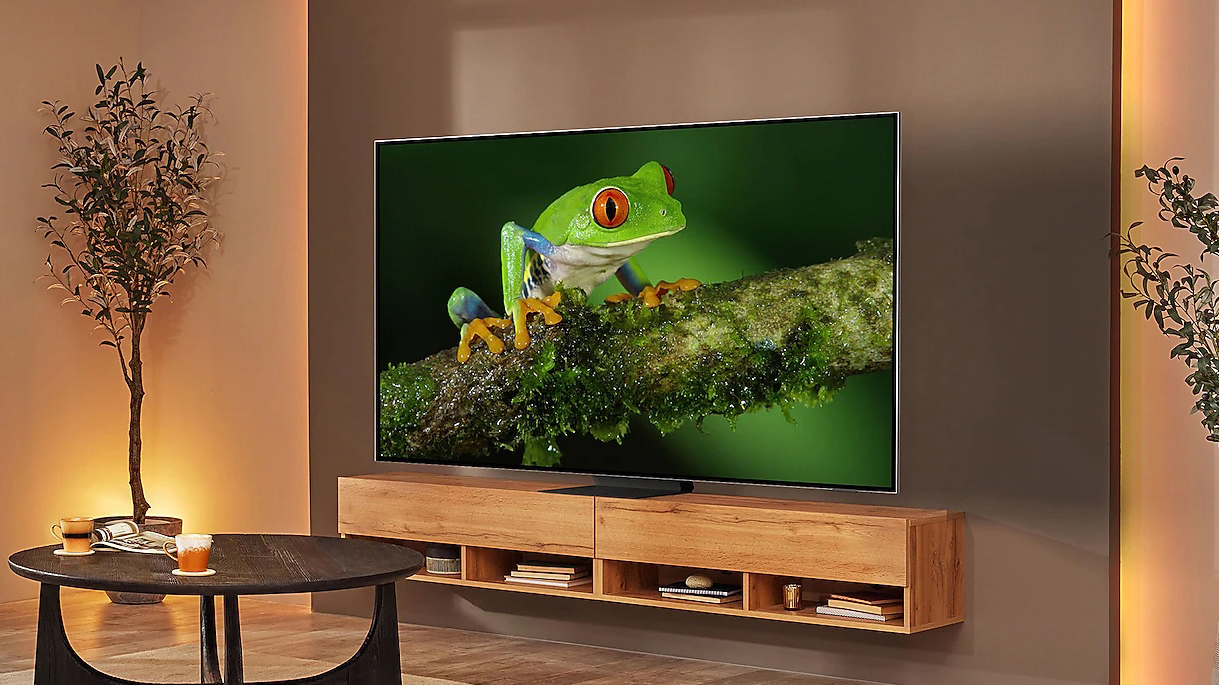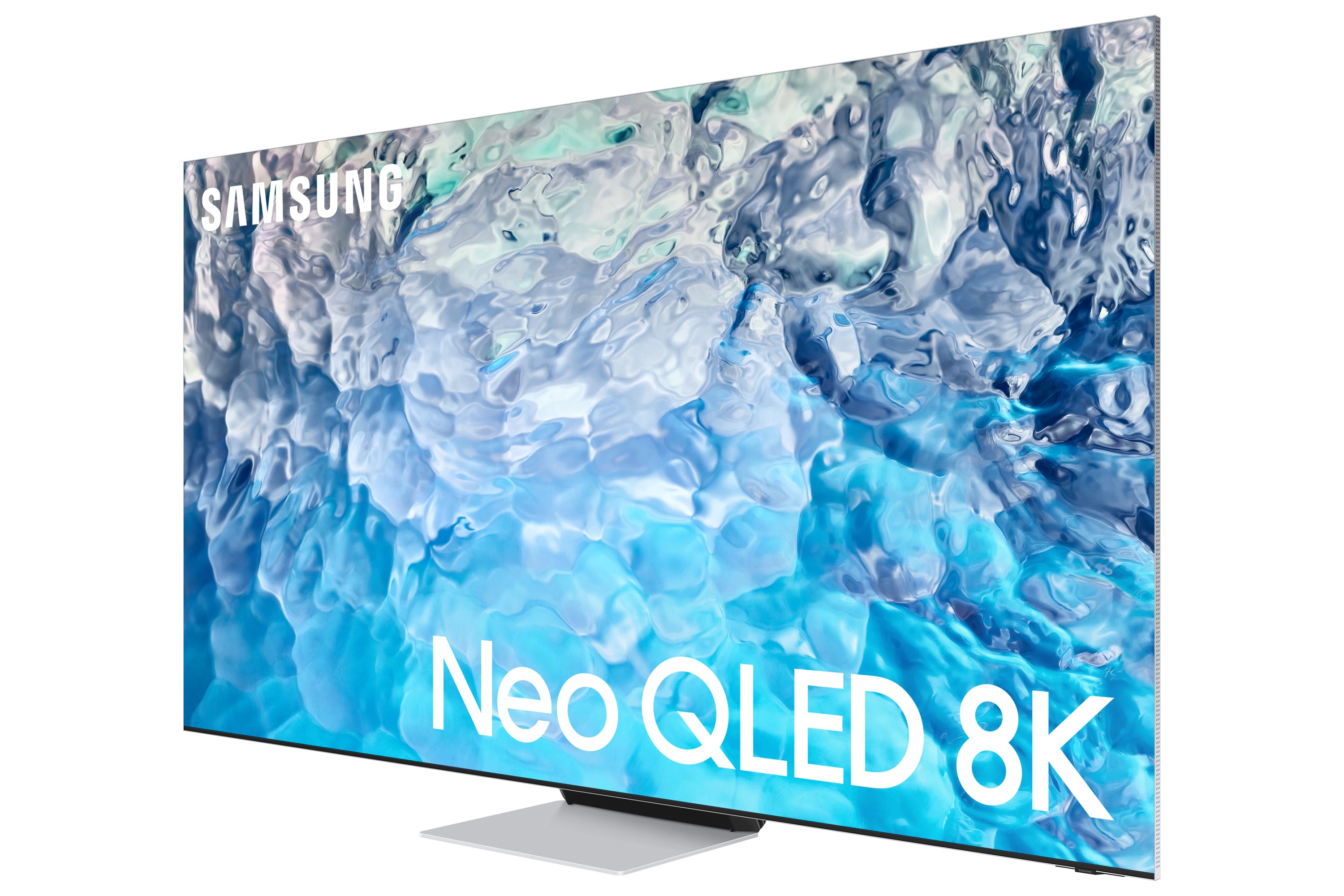In Europe, Samsung's new 8K TVs will be dim out of the box, but you can fix that
Samsung has a workaround for its super resolution TVs

Sign up for breaking news, reviews, opinion, top tech deals, and more.
You are now subscribed
Your newsletter sign-up was successful
Samsung appears to have found a way around new European TV power consumption regulations that could have stopped their next-gen 8K TVs being sold in the region.
The new EU rules set out in the 2023 Energy Efficiency Index (EEI) include a lower maximum level for power consumption that is due to be imposed on all new TVs produced.
The regulations have had industry insiders worried that the increased power needs of 8K TVs would push them over the threshold, effectively preventing TVs that feature the latest higher resolution panels, such as Samsung's QN800B, being sold in the region and ultimately stopping the 8K TV revolution in its tracks before it has even begun.
Having lobbied the European Commission to reconsider the move without any success, Samsung have had to find a compromise for its 2023 8K TV plans.
The workaround they’ve landed upon has been revealed in a report by senior tech writer John Archer for Forbes, with the South Korean firm deciding to ship its next-gen TVs with their brightness dialed down to substantially lower levels as their default out-of-the-box preset setting, which is locked.
The workaround will also see the TV's local dimming mode set to Low rather than Standard in order not to fall foul of the regulations.
Underlining just how low the default settings will be, Archer’s report claims that the new QN900C 8K TV's brightness level could be locked at a value of 8 – a long way underneath the set’s maximum value of 50.
Sign up for breaking news, reviews, opinion, top tech deals, and more.
Those worried about the new TV’s picture capabilities being completely hobbled need not worry, however. The default out-of-the-box setting will come under a preset named ECO, while the TV’s other Standard, Dynamic, and Movie presets won’t be limited by the same brightness restrictions. There are also no limitations for users when making their own custom presets.
It's currently unclear as to whether the ECO mode as default will be rolled out beyond Europe.

Analysis: 8K era can still shine bright, despite restrictions
From the supply chain and cost of living crisis, to the lack of content and broadcasts in the format, there are a host of hurdles that look set to prevent adoption of 8K TVs.
The new EU restrictions are another annoying obstacle for the likes of Samsung – we can certainly envisage its customer services department getting plenty of calls from disgruntled owners asking why their cutting-edge new TV looks so dark – but it’s not an issue that we feel is likely to prove too big a problem in the long run for both TV makers nor consumers.
Indeed, the move will likely have positive benefits for users and for Samsung.
With energy bills at record highs, the out-of-the-box setting will serve as big reminder to owners that having the brightness cranked up will increase their electricity usage. That awareness may may lead to some users conserving the higher output settings for special occasions like movie nights.
And while it may be a somewhat begrudging move on Samsung’s part, the default preset settings won’t harm its reputation as being a company genuinely concerned about its environmental impact on the world.
If you're in the market for a new TV, but aren't ready to jump on the 8K bus, why not check out our best 4K TVs list.

Kevin Lynch is a London-born, Dublin-based writer and journalist. The author of Steve Jobs: A Biographic Portrait, Kevin is a regular feature writer for a number of tech sites and the former Technology Editor for the Daily Mirror. He has also served as editor of GuinnessWorldRecords.com and has been a member of the judging panel for the BAFTA British Academy Video Game Awards. Alongside reviewing the latest AV gear, smartphones and computers, Kevin also specialises in music tech and can often be found putting the latest DAWs, MIDI controllers and guitar modellers through their paces. Born within the sound of Bow Bells, Kevin is also a lifelong West Ham fan for his troubles.